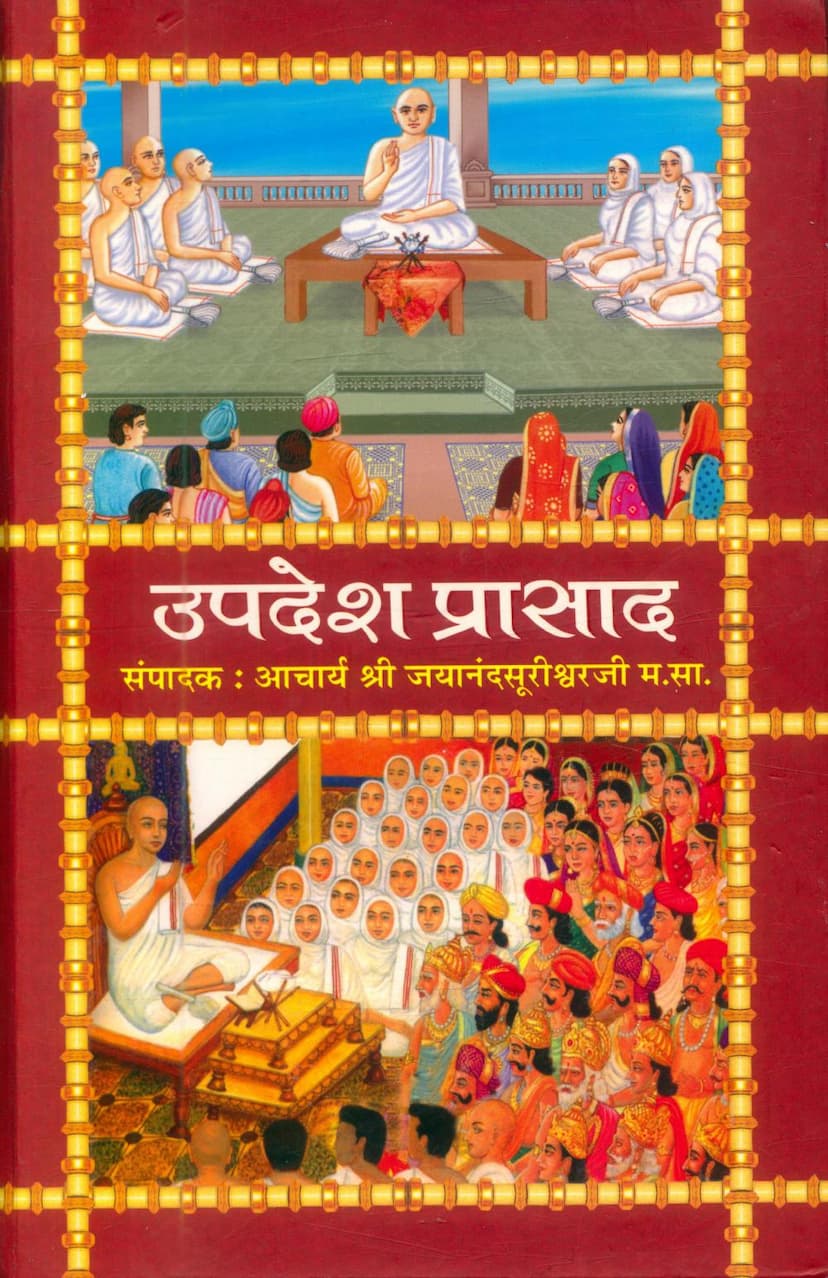Updesh Prasad
Added to library: September 2, 2025

Summary
This text is the first volume of "Updesh Prasad" (A Mansion of Counsel), edited by Acharya Shri Jayanandsurishwarji M.S. and published by Gurushri Ramchandra Prakashan Samiti, Bhinmal. The catalog link is provided as jainqq.org.
The book is dedicated to Lord Mahavir Swami and Acharya Shrimad Vijay Rajendrasurishwarji. It is presented as Part 1 and is intended for private and personal use only by Jain Education International.
The initial pages (1-10) primarily consist of acknowledgments and gratitude to various individuals, families, trusts, and organizations who supported the publication. This includes numerous patrons and co-patrons, indicating a community effort behind the book.
Key elements from the initial pages:
- Title: Updesh Prasad (उपदेश प्रासाद), Volume 1.
- Editor: Acharya Shri Jayanandsurishwarji M.S.
- Publisher: Gurushri Ramchandra Prakashan Samiti, Bhinmal.
- Dedication: To Lord Mahavir Swami and Acharya Shrimad Vijay Rajendrasurishwarji.
- Sponsorship: Extensive lists of patrons and co-patrons, with names and often locations, suggesting broad community support.
- Publication Details: Mentions of printers (Bharat Graphics, Ahmedabad) and contact information.
The core content of the "Updesh Prasad" appears to be a collection of discourses or teachings ("Updesh"). The subsequent pages (11 onwards) detail an extensive index ("Anukramanika") listing numerous "Vyakhyan" (discourses/lectures), numbered from the first to the sixty-eighth. These discourses cover a wide range of Jain philosophical concepts, ethical principles, historical narratives, and exemplary lives of saints and devotees.
Based on the structure and titles of the discourses, the book likely covers:
- Samayik (Righteousness/Equanimity): Discussions on various aspects of right faith (Samyaktva), its merits, and the qualities of those who uphold it.
- Vratas (Vows): Detailed explanations of the vows taken by monks and lay followers, including the five minor vows (Anuvratas), three quality vows (Gunavratas), and four training vows (Shikshavratas).
- Conduct and Behavior: Emphasis on ethical conduct, proper behavior, and the importance of adhering to Jain principles in daily life.
- Exemplary Lives: Narratives of virtuous individuals, saints, kings, and ascetics who exemplified Jain ideals. These stories often illustrate the consequences of actions (karma) and the rewards of devotion and adherence to dharma.
- Philosophical Concepts: Discussions on core Jain doctrines, possibly including the nature of the soul (Jiva), non-soul (Ajiva), karma, liberation (Moksha), and the path to achieve it.
- The Importance of Gurus and the Jain Sangha: Highlighting the role of spiritual teachers (Gurus), scholars (Gyanis), and the community (Sangha) in spiritual progress.
- Overcoming Obstacles: The text seems to address potential challenges and temptations in the spiritual path, such as attachment to worldly pleasures, the influence of false beliefs (Mithyatva), and the importance of overcoming them through right knowledge, faith, and conduct.
- Specific Jain Practices: Mentions of various practices like fasting (Anshan), vows (Vrata), penance (Tapasya), and scripture study (Adhyayan).
The "Updesh Prasad" is structured as a compendium of spiritual guidance, likely delivered through lectures or discourses, and then compiled into this book for broader dissemination. The detailed index suggests a systematic approach to teaching and learning Jain principles. The extensive lists of patrons also highlight the reverence and value placed on such spiritual literature within the Jain community.